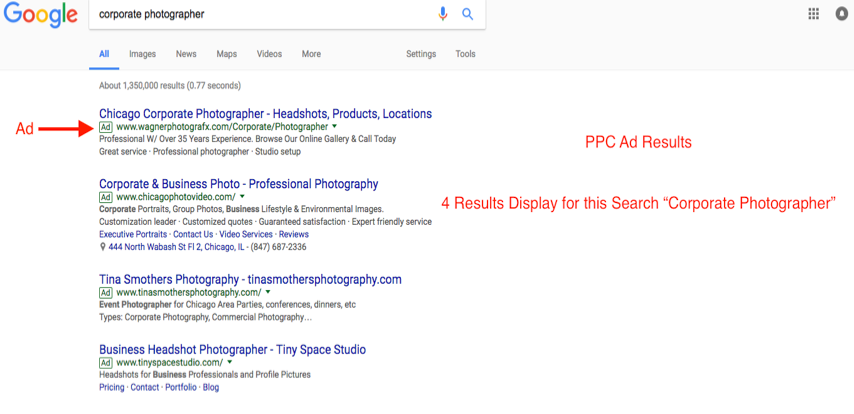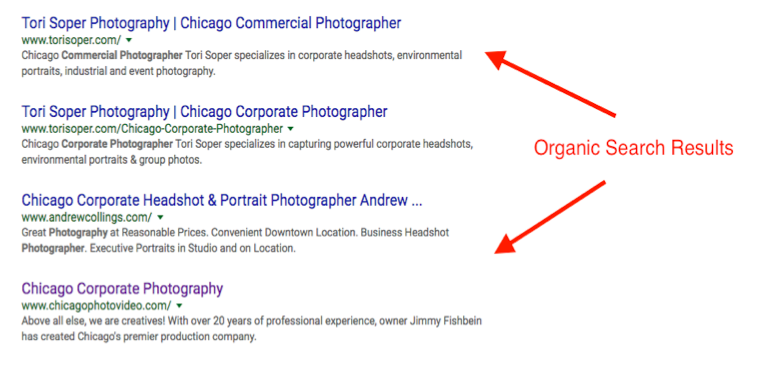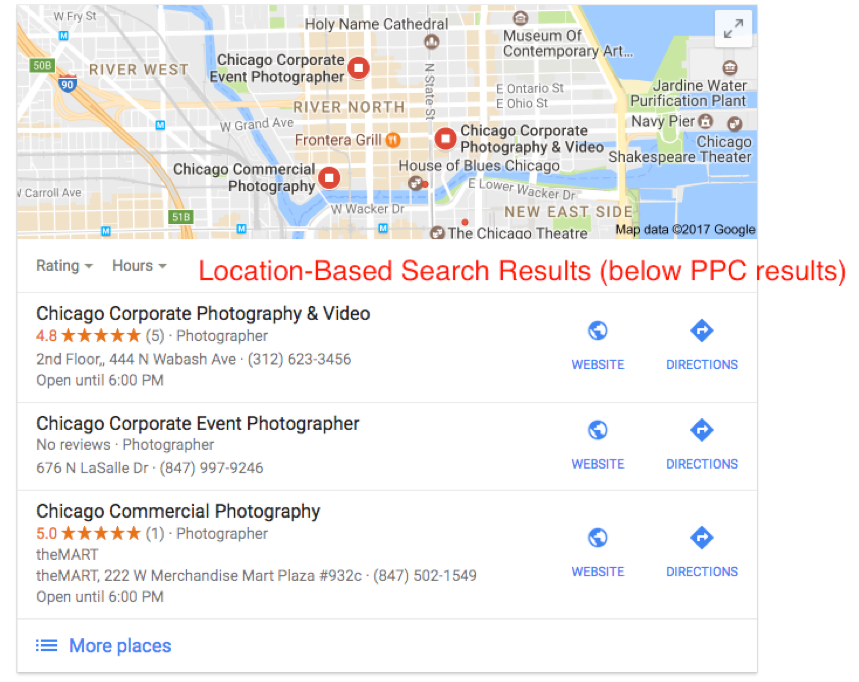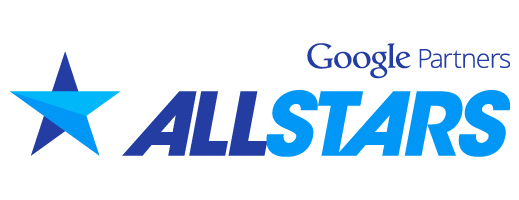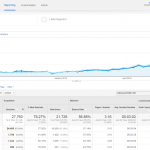Why PPC Advertising Can’t Be Ignored for a Business Looking to Sell
People seem to turn to search engines for one of two things: To ask a question or to find something to buy. In general, it seems that SEO works wonders for those who are looking to find the answer to a question—part of the reason that quality content is so important when it comes to SEO. However, because SEO strategies and conversations are so popular right now, many businesses are stubbornly trying to “save money” and ignore PPC digital marketing.
Pay-Per-Click (PPC) is a form of search engine advertisement/internet marketing where advertisers only pay when their ad is clicked. In other words, displaying the ad does not cost money and ads are only paid for when traffic actually gets to the website. Consider the different types results on a search engine page below:
Pay-Per-Click Results
Organic (SEO) Results
Maps (PPC) Results
Utilizing PPC advertising is a quick way to get your company or blog to the top of a search engine results page. Getting ranked to the top of the organic search space takes a lot of work and a long time to see results, so PPC works to give companies that extra edge while they become more established. Consider some of the benefits of PPC:
- You know that your ad will be on a certain page if you pay for it. An organic position can change at any moment, but PPC is consistent and reliable.
- If your company is new on the scene, PPC allows you to compete with those larger, more established companies. You have to pay for it, but you have the same marketing opportunities as your competitors with PPC.
- You will be able to track which keywords convert well and which keywords don’t when using PPC. SEO takes a long time to give you results, so using PPC in order to help your future SEO efforts is a great way to get ahead.
- PPC doesn’t have to be expensive. You can decide which pages are worth your while to advertise and then spend as much as you want. Having the ability to establish your budget with PPC is a major benefit—but it is even better that you only pay when someone actually clicks on the ad (and onto your site).
Obviously in order to take part in PPC advertising you need to set aside some of your marketing budget to accommodate for it, which you can learn more about here. Once you think your company will benefit from PPC advertising, it’s time to get started. Consider a few of the most important steps to get your advertisement at the top of those search engine pages below.
How to Get Started with PPC Advertising in Three Simple Steps
Decide Which Search Engine You’d Like to Work With
Many companies go running to Google AdWords for obvious reasons—Google is the #1 search engine in the world. However, it’s important to realize that there are other search engines out there that could help you benefit even more and give you more bang for your buck. Look at the competition and the prices of the different search engines and then decide which works best for you needs. Some of the other major search engines where you can utilize PPC advertising include Bing, Yahoo, YouTube.
Do Keyword Research and Decide What You Want to Target
It is important you do a little bit of keyword research and decide where your customers might be searching. Moz said it best, “It all begins with words typed into a search box,” so you need to put yourself in the position of your audience and see how they might go about finding your products and services. You might as yourself some questions to get started:
- Are they keywords you want to use relevant to your website’s content? They should definitely match up, which might require some website revisions.
- What websites rank for you keywords? Are they your competitors? That is often a great way to tell if they are relevant!
Once you know the keywords you want to target, be sure to put those keywords in your title, text, and Meta description, as well as in your ad copy. Of course, you can always revise, add, or take away keywords based on performance once you get started with PPC.
Here are some keyword research tools to help you get started:
-
Consider the Cost of the PPC Ad
Your company will have to pay the search engine each time someone clicks on your ad (regardless if they buy anything or convert in the way you are hoping they will). This is something to keep in mind when you bid for a spot on a search engine. You will need to think about the number of times you think someone will click on your ad, the number of times someone will convert, and then create a formula to let you know how much you should bid. For example, if you get one sale for every 100 clicks and your product costs $10, you should not pay more than ten cents per click (so ten cents would be your bid). If you’re like me and you’re into anything but math, this is a great time to work with your accountant! There are tools on most PPC platforms to help you understand cost-per-click and conversions, but it always helps to go into PPC advertising as informed as possible.
The Takeaway
It is clear that PPC advertising can be extremely helpful in gaining website traffic and sale conversions, especially for small businesses. The biggest thing to remember is that you should be utilizing both PPC and search engine optimization (SEO). There may come a day when your PPC advertisements end, but for most companies they are a great way to increase traffic and gain visibility. This will eventually help your SEO campaign and hopefully put you on the same playing field as the Macy’s and Tommy Hilfiger.
Have you started your own PPC efforts? What challenges are you facing with getting started? Let us know in the comments section below, we would love to hear from you! If you are interested in help with your PPC strategy, learn about our services here.
